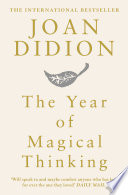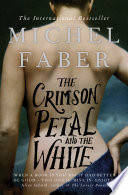The Year of Magical Thinking
 The Year of Magical Thinking by Joan Didion
The Year of Magical Thinking by Joan Didion Published by HarperCollins UK on February 20, 2009
Genres: Biography & Autobiography / Literary Figures, Biography & Autobiography / Personal Memoirs, Biography & Autobiography / Women
Pages: 240
Buy on Amazon
From one of America's iconic writers, a portrait of a marriage and a life – in good times and bad – that will speak to anyone who has ever loved a husband or wife or child. A stunning book of electric honesty and passion.
Several days before Christmas 2003, John Gregory Dunne and Joan Didion saw their only daughter, Quintana, fall ill. At first they thought it was flu, then pneumonia, then complete sceptic shock. She was put into an induced coma and placed on life support. Days later – the night before New Year’s Eve –the Dunnes were just sitting down to dinner after visiting the hospital when John suffered a massive and fatal coronary. In a second, this close, symbiotic partnership of 40 years was over. Four weeks later, their daughter pulled through. Two months after that, arriving at LA airport, she collapsed and underwent six hours of brain surgery at UCLA Medical Centre to relieve a massive hematoma.
This powerful book is Didion’s ‘attempt to make sense of the weeks and then months that cut loose any fixed idea I ever had about death, about illness ... about marriage and children and memory ... about the shallowness of sanity, about life itself’. The result is an exploration of an intensely personal yet universal experience: a portrait of a marriage, and a life, in good times and bad.
My Thoughts
Lately I’ve had an interest in books that examine grief and Magical Thinking is up there, in the list of excellent books that deal with the death of a loved one. I immediately liked Didion’s writing style. Her prose, beautiful and her pragmatic approach appealed. A conversation with a doctor as she tried to explain that she was struggling to find an upside to this situation (her husband died from an unexpected heart attack) resonated with me, an eternal optimist, frantically looking for the positive in the worst of circumstances. I got that. What I didn’t get so much was the constant name-dropping and the, possibly unconscious, way she had of communicating how wealthy she was. This became tedious after a while and unnecessary, distancing and cocooning herself in a luxurious ivory tower of grief. Of course, rich people feel grief in a similar way to those of us of more humble means but it took something away that it was constantly mentioned which made comments from me of ‘it could be worse, you could also be struggling to pay your bills and eat.’ A interesting book which could have been great.

 The River by
The River by  Seven Husbands of Evelyn Hugo by
Seven Husbands of Evelyn Hugo by 
 My Perfect Daughter by
My Perfect Daughter by  Verity by
Verity by  The Familiars by
The Familiars by  Book Lovers by
Book Lovers by 
 The Crimson Petal and the White by
The Crimson Petal and the White by  White Bones by
White Bones by 
 Mrs England by
Mrs England by 